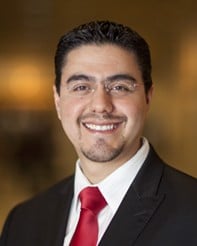
Each year the Endocrine Society recognizes endocrinologists who are in the early stages of their research careers by giving out the Early Investigator Awards. Endocrine News spoke to the five researchers from around the world to find out more about their award-winning research, the award’s potential impact, as well as how the COVID-19 pandemic has affected their research and their lives.
Much has been written about the impact of the global pandemic on science over the past year. There are, however, many stories of progress and breakthroughs in research that highlight the perseverance of scientists who soldiered on during 2020 to continue to impact the health and lives of global citizens. Five such endocrine researchers in the blossoming stages of their careers have been recognized with the Endocrine Society’s 2021 Early Investigator Award.
The winners are: Himanshu Arora, PhD, of the University of Miami in Coral Gables, Fla.; Ana Aulinas, MD, PhD, of the Hospital de Sant Pau in Barcelona, Spain; Athansisos Bikas, MD, PhD, of Brigham and Women’s Hospital in Boston; Juan Brito, MD, of the Mayo Clinic in Rochester, Minn.; and Manuel D. Gahete, PhD, of the University of Córdoba in Andalusia, Spain.
In part 4 of our 2021 Researchers Roundtable feature, here is our conversation with Juan Brito, MD, of the Mayo Clinic in Rochester, Minn.
Endocrine News: To get an idea of who comprises our “early investigators,” can you share at what stage you are in your fellowship or year as faculty?
Juan Brito: I finished my endocrine fellowship in 2014 and my thyroid cancer fellowship in 2016, after that I joined the Division of Endocrinology at Mayo Clinic.
EN: What inspired you to apply for the award?
Brito: Endocrine research has been highly focused on understanding the pathophysiology of hormones. My interest has been more focused on the impact of endocrine conditions in patients’ lives and how endocrine care is delivered. My nomination was an opportunity to recognize the importance of patient-centered healthcare delivery research in endocrinology.
EN: Please explain your research in a few sentences.
Brito: Thyroid cancer incidence has increased in the U.S. and worldwide, mostly due to the diagnosis of small and indolent thyroid cancer. This overdiagnosis of thyroid cancer has led to the overtreatment of patients. My research has explored the magnitude of thyroid cancer overdiagnosis, its main drivers (i.e., inappropriate use of thyroid ultrasound and thyroid nodule biopsy), how overdiagnosis changes based on country and geography, and different interventions to overcome thyroid cancer overtreatment (role of active surveillance, shared decision making, relabeling cancer).
EN: What have been the biggest challenges of doing your work during the pandemic?
Brito: The biggest challenge was not able to maintain the same level of interaction with our research team and finding the value and purpose of our research in the middle of deadly pandemic.
“Endocrine research has been highly focused on understanding the pathophysiology of hormones. My interest has been more focused on the impact of endocrine conditions in patients’ lives and how endocrine care is delivered. My nomination was an opportunity to recognize the importance of patient-centered healthcare delivery research in endocrinology.” – Juan Brito, MD, Mayo Clinic, Rochester, Minn.
EN: How do you hope winning the Early Investigator Award will help support your goals as an endocrine scientist?
Brito: The award gives a platform to highlight the importance of healthcare delivery research in endocrinology, which in turn could help others to understand its value and improve funding. It could also have a positive impact on future career development opportunities.
Fauntleroy Shaw is freelance writer based in Carmel, Ind. She authors the monthly Laboratory Notes for Endocrine News.

